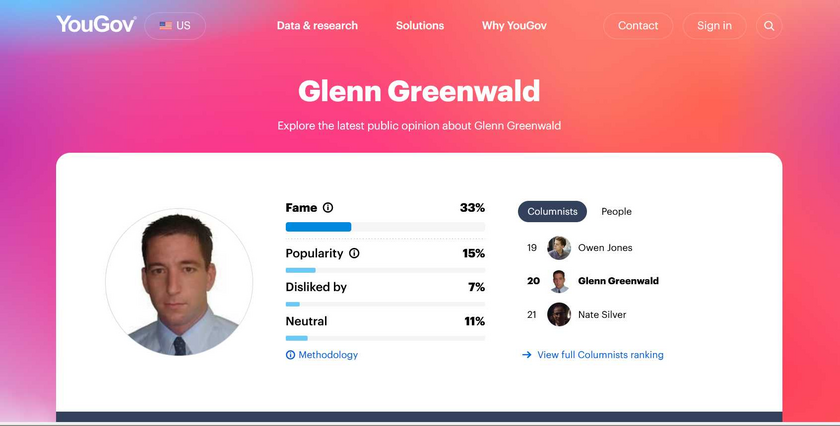Watch the full episode here:

Good evening. It's Monday, January 29.
Tonight: is Joe Biden leading the United States into an even more expanded war in the Middle East, this time targeting Iran? After the October 7 attack by Hamas, the Biden administration pledged full and unconditional American support for Israel, not only proposing to pay for and arm Israel's war, but even deploying military assets to that region, including two aircraft carriers. The objective, they said at the time, was to ensure that there would be no regional escalation. Yet exactly that has happened.
The Israelis and Hezbollah have been repeatedly attacking one another for months. The U.S. has repeatedly and fatally bombed targets in both Syria and Iraq that it alleges are the home of Iranian-backed militias and has bombed multiple targets in Yemen over the last month, in retaliation for attacks by the Houthi on commercial ships connected to Israel in the U.S. But all of that escalation, though dangerous in the extreme, makes what happens next seem like child's play, as members of both parties are urging, even demanding, that Biden now attack and bomb targets inside Iran in retaliation for the death of three American soldiers at a U.S. base in Jordan caused by a drone attack the U.S. says Iran is responsible for.
If one looks at this incident in complete isolation—three American soldiers were killed by a drone attack on the U.S. military base—then the question of what the U.S. should do might seem simple. Namely, the U.S. must retaliate, perhaps even aggressively, against whichever country was to blame. But if you pull back the analytical prism just a few inches, much broader and more complex questions arise, ones which complicate that question significantly.
To begin with, why does the U.S. have military bases and U.S. soldiers deployed all across the Middle East, including in Jordan, Syria and Iraq? Looking at things purely from a pragmatic perspective, what does one expect will happen if the U.S. involves itself in multiple wars in the Middle East, including paying for and arming Israel as it destroys Gaza? Is it reasonable to assume that all these other countries will simply stand by passively, while the U.S. continues to interfere in, and assert its military force in that region? And how far is the U.S. willing to go? What price are Americans willing to endure in the name of protecting Israel and empowering its war in Gaza?
Such questions regarding the use of force and bombing campaigns and the like had traditionally broken down years ago along left/right lines, but not anymore. After the standard establishment Republican warmongers, people like GOP Senators Lindsey Graham, Tom Cotton and John Cornyn all demanded that Biden strike Iran, the former Fox News host Tucker Carlson, in a mega-viral tweet, proclaimed them to be, and I quote, “fucking lunatics.”
Other Republican politicians, including Rand Paul and Vivek Ramaswamy, have long questioned the wisdom of trifling with the U.S. war with Iran, something that has long been the goal of Israel's most ardent supporters in the U.S., as well as typical cheerleaders for the military-industrial complex and the doctrine of endless war. We'll report on these latest events involving Iran and examine all of these obviously important and quite grave questions that arise from them.
Then: former House Speaker Nancy Pelosi went on CNN on Sunday and announced her belief that pro-Palestinian protesters in the United States are likely Russian agents or in some other way are tied to the Kremlin. As a result of her suspicions, which she insisted were well-founded, and what she described as her longtime interest in the topic of Russian infiltration, Pelosi called on the FBI to immediately investigate those who are protesting against the Israeli war in Gaza, to find out about their connections to the Kremlin. In an odd turn of events, however, the very same Nancy Pelosi—when pro-Palestinian protesters showed up at her house earlier today to protest her support for Israel's war—screamed at them, “Go back to China. That's where your headquarters are.” She did not appear to realize that only 24 hours earlier, she had claimed that their headquarters were in Moscow, not Beijing.
It is tempting just to laugh off Pelosi's rantings as the delusions of a deranged elderly lady who has spent her life accustomed to being shown great deference. That is of course true and is undoubtedly part of what is driving her uncontrolled rage against these protesters. There are several revealing aspects to this incident, however, showing not only how reflexively Washington Democrats seek to weaponize the FBI against their political opposition, but also how demented this core Democratic Party tactic is, which has dominated this party's discourse for almost eight years now, of insisting that anyone who questions or opposes them must be controlled by and loyal to Russia.
Along the same lines, we'll examine the latest campaign literature of Congressman Adam Schiff, who was Pelosi's candidate for the U.S. Senate in California, where he boasts that he proved that Trump and Russia illegally colluded.
Finally, one of the most inflammatory events driving the conflict in the Middle East has been the attack by the Houthi on U.S. and Israeli-linked commercial ships in the Red Sea. The way that the Houthis have caused so much turmoil and difficulty for commercial shipping is actually quite fascinating, given how little resources and military sophistication they possess. To help us understand exactly what is going on. We will speak to Sal Mercogliano, a former merchant marine and expert in the maritime sector, who is the host of a YouTube channel show entitled “What's Going On with Shipping?” Last week, he produced a very informative video explaining in detail exactly what the Houthis have been doing, why it is far more serious than it has been appreciated, and what the U.S. response has been and still might be in the future.
For now, welcome to a new episode of System Update, starting right now.

























